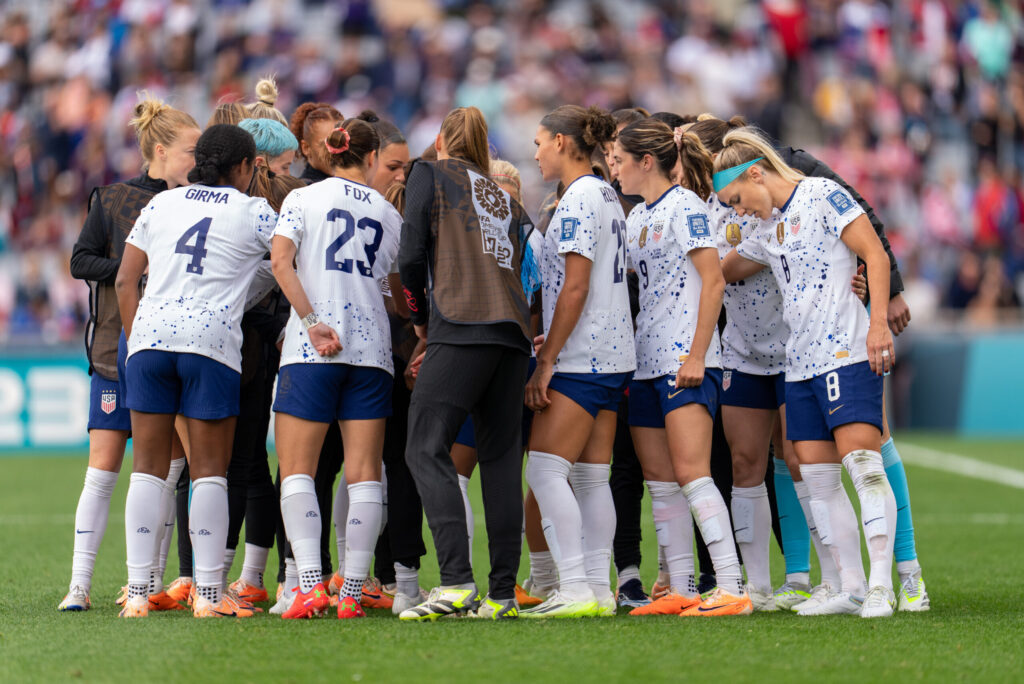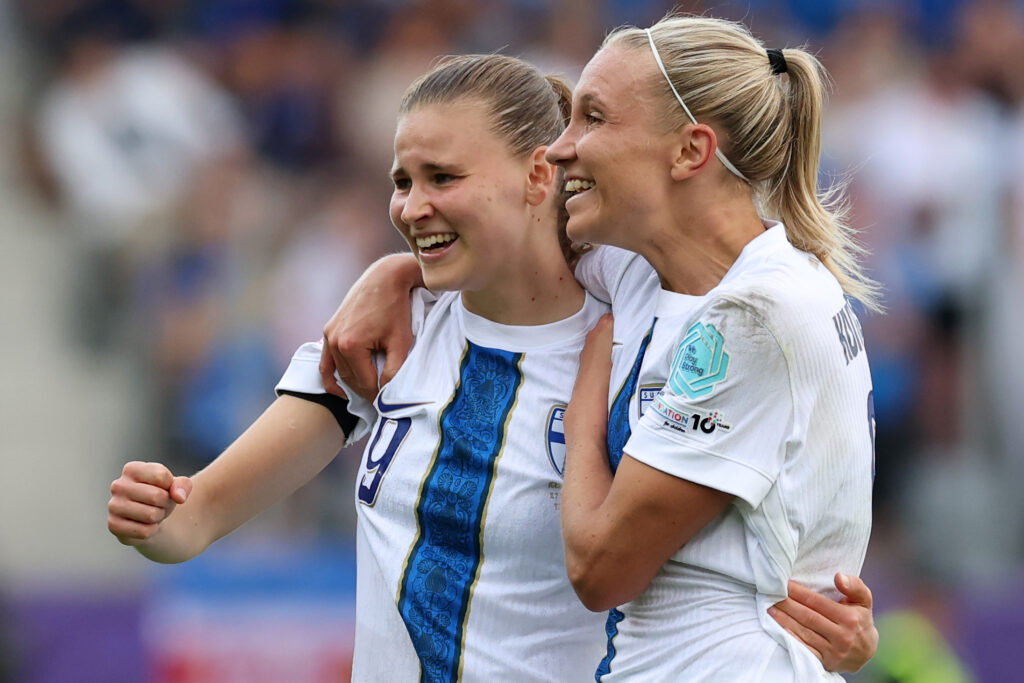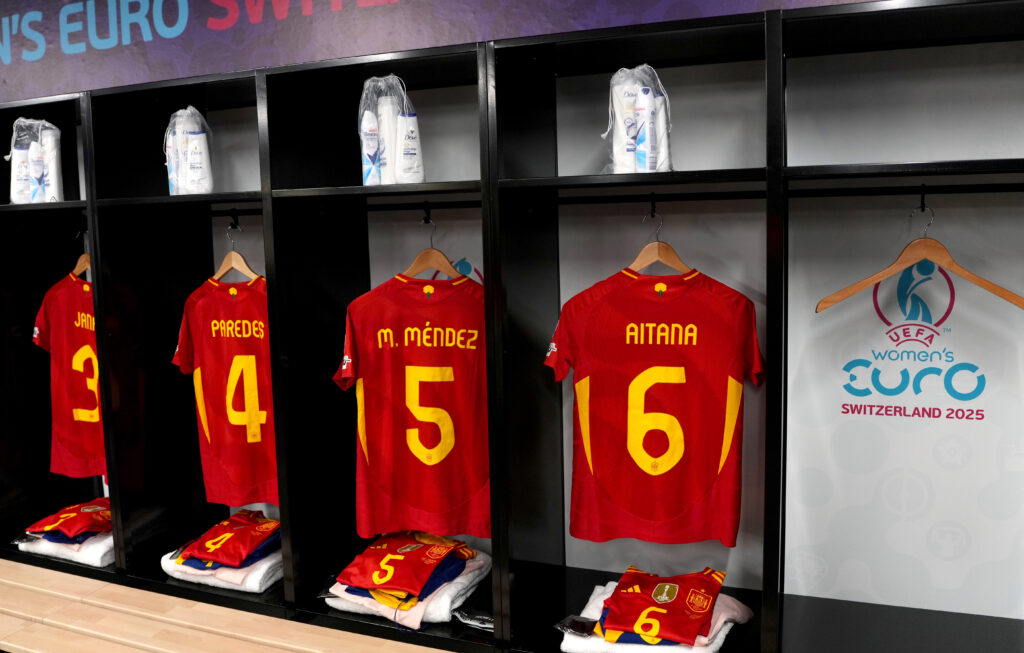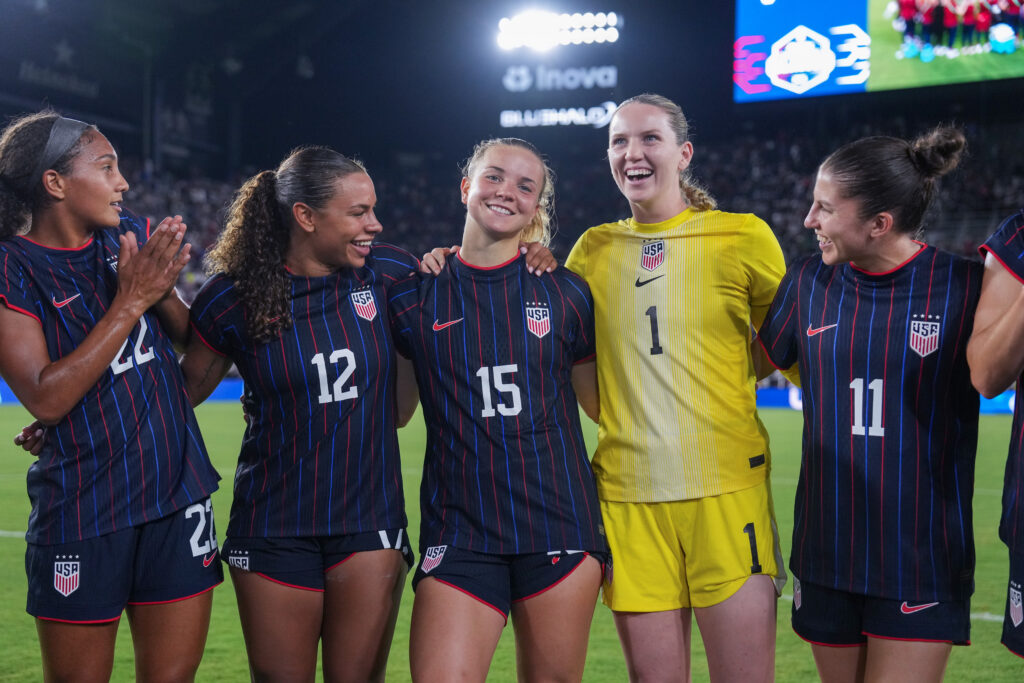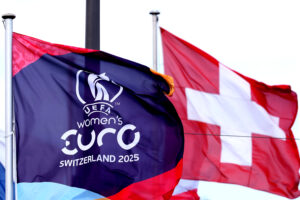The U.S. Soccer Federation, in conjunction with the Mexico Football Federation, submitted a joint bid to host the 2027 Women’s World Cup on Friday.
The bid’s tagline is “NEW HEIGHTS,” which includes a collective vision to “deliver a tournament with the world’s greatest players playing on world-class pitches in sold-out stadiums.”
As part of the bid, USSF cites infrastructure that “is already in place – including training facilities, match venues, base camps and travel accommodations – to deliver an excellent on-field product and top-level performance throughout the entirety of the tournament.”
In a release, U.S. Soccer president Cindy Parlow Cone called it a “pivotal time for women’s soccer.”
“Around the world, Federations are beginning to invest more and more in the women’s game and records are being rewritten for revenue, viewership, and participation,” Parlow Cone said. “The U.S. and Mexico are in a unique position to host a World Cup that will leverage the same venues, infrastructure, and protocols used for the Men’s World Cup just a year prior.
“As a result, we believe the time is right to host a FIFA Women’s World Cup that features a truly world-class experience for players and fans, alike. This will not only unlock the economic potential of women’s soccer, it will send a message to young players around the world that there is no limit to what they can achieve.”
The U.S. is set to host the 2026 Men’s World Cup alongside Mexico and Canada. The bid for the women’s tournament will utilize “key efficiencies” from that event to help their iteration of the event.
U.S. Soccer had previously announced their intention to submit a bid alongside Mexico. Belgium, Germany and the Netherlands submitted their bid on Friday, the deadline to do so, as well. Brazil had previously submitted their bid.
South Africa had put in a bid, but withdrew it in November.
There are still some obstacles in the way of a World Cup being played in the U.S. and Mexico, though. The World Cup has never been hosted by a South American country, making Brazil a high-quality bidder for the tournament. Germany, meanwhile, hosted a World Cup in 2011 and splitting the games between three countries would provide the infrastructure needed for the tournament.
